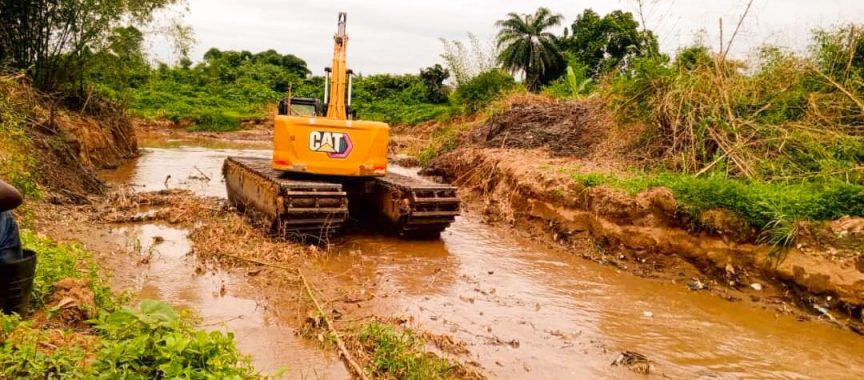News
Nigerian Government loses N1.474tn to 222 terminal shutdowns in 10 months

The production of 50.788 million barrels of crude oil valued at N1.474tn was stalled between January and October last year due to community interferences and other challenges forcing oil terminals to shut down production 222 times within the period.
Nigeria’s crude oil earnings were depleted by about N1.474tn between January and October 2021 due to various concerns at terminals that prevented the production of 50.788 million barrels of oil during the 10 months.
It was gathered that community interferences, industrial actions by oil workers, COVID-19 outbreak at some terminals, pipeline vandalism, among others, curtailed oil production in various terminals, leading to huge financial losses for Nigeria.
This came as stakeholders urged the Federal Government to push for the deployment of the latest technologies in securing oil infrastructure, as well as try to avoid issues that would warrant industrial actions.
Industry data obtained from different reports of the Crude Oil Marketing Division of the Nigerian National Petroleum Company Limited in Abuja showed that in January, February and March, the volumes of oil lost due to production shut-ins were 3,678,000; 4,105,000 and 3,142,000 respectively.
The losses posted in April, May, June and July were 4,578,700; 4,187,500; 6,035,000 and 7,193,520 respectively.
It continued in August, September and October, as crude oil production losses due to shut-ins were put at 6,680,620; 6,362,700 and 4,824,946 respectively.
A summation of the crude oil volumes that were shut in between January and October 2021 indicated that the country lost about 50.788 million barrels of oil during the 10 months.
The 2021 average monthly prices of a barrel of Brent, the crude against which Nigeria’s oil is priced, were obtained from Statistica, a global statistical firm.
Figures from the international firm indicated that the average prices of Brent in January, February, March and April 2021 were $54.77, $62.28, $65.41 and $64.81 respectively.
In May, June, July and August 2021, the average prices were $68.53, $73.16, $75.17 and $70.71 per barrel respectively.
For September and October, the average monthly prices of Brent per barrel were put at $74.49 and $83.54 respectively.
At the official exchange rate of N411.95 to the dollar, the worth of the crude volumes lost by the country in January, February, March and April were N82.98bn, N105.32bn, N84.66bn and N122.24bn respectively.
For May, June and July, the country’s oil earnings were depleted by N118.23bn, N181.88bn and N222.76bn respectively.
Also in August, September and October, Nigeria could not make N194.71bn, N195.246bn and N166.05bn respectively from the sale of crude oil due to interferences in oil production at terminals.
This implies that the value of the 50.788 million barrels of crude oil that was lost by Nigeria during the 10 months was about N1.474tn, a development which, according to analysts, would have been avoided.
They noted that the huge financial loss came at a time when the country’s debts had been increasing, with the Federal Government sourcing for funds by borrowing several billions of dollars.
According to industry stakeholders, humongous sums have also been spent by the government in its bid to service the country’s debts and so much had also been budgeted for debt servicing in the coming year.
On December 16, 2021, for instance, The PUNCH exclusively reported that Nigeria spent N2.49tn on debt service payments in the first nine months of this year, according to data from the Debt Management Office.
Meanwhile, the COMD reports of events that affected production in January 2021 showed that the 3,678,000 barrels lost due to production shut-in were recorded in eight terminals.
It named the affected terminals to include Forcados, Abo, Yoho, Agbami, Pennington, Ugo Ocha, Qua Iboe and Ima.
On some of the issues that led to crude oil loss in January, the report stated that Shell Petroleum Development Company declared a force majeure that lasted for four days.
This, it said, was due to the shutdown of Trans Forcados Pipeline as a result of community issues on January 10, 2021, over outstanding payments.
In February, a total of 17 incidents led to the shut-ins at terminals, among which include the outbreak of COVID-19 at the Abo Terminal.
It was further observed that 14 terminals recorded crude oil losses in February. They include Forcados, Abo, Akpo, Bonga, Amenam, Erha, Escravos, Brass, Egina, Bonny, Pennington, Ebok, Tulja and Ima.
The month of March witnessed 16 incidents that resulted in the loss of 3,142,000 barrels of crude oil at 10 terminals. The affected terminals include Forcados, Akpo, Erha, Brass, Egina, Bonny, Pennington, Okono, Yoho and Ima.
The NNPC explained that one of the reasons for production losses at the Forcados Terminal in March, for instance, was because “Pan Ocean OML 147 (had to) shut-in production because of industrial action.”
The report further noted that there was a production shut-in at Jisike in Brass Terminal from March 22 to April 2, 2021, adding that this was “due to industrial action by PENGASSAN (Petroleum and Natural Gas Senior Staff Association of Nigeria).”
An analysis of the COMD report of events that affected production in April 2021 showed that 30 incidents depleted oil delivery at 13 terminals during the month under review.
The terminals were outlined as Forcados, which witnessed up to 11 incidents in April, Anyala Madu, Bonny, Ugo Ocha, Otakikpo, Abo, Sea Eagle, Usan, Agbami, Okono, Antan, Pennington and Ima.
The month of May also recorded 30 incidents that also occurred at 13 oil production terminals, which include Forcados, Anyala Madu, Bonny, Ugo Ocha, Otakikpo, Egina, Sea Eagle, Usan, Brass, Akpo, Yoho, Qua Iboe and Ima.
In one of the incidents at the Bonny Terminal in May, for instance, the NNPC said, “Eroton production was shut down due to vandalised AKOS015S wellhead and community disturbance.”
A total of 32 incidents led to the curtailment of crude oil production at 15 terminals in June last year.
The affected terminals include Forcados, Anyala Madu, Bonny, Ugo Ocha, Okono, Sea Eagle, Usan, Brass, Erha, Yoho, Qua Iboe, Agbami, Egina, Pennington and Ima.
The volume of oil lost in July stood out as the highest during the 10-month review period, as the delivery of 7,193,520 barrels of crude was stalled by 39 incidents that occurred at 14 production terminals.
The terminals where these incidents occurred include Forcados, Antan, Bonny, Sea Eagle, Usan, Brass, Yoho, Qua Iboe, Escravos, Akpo, Ajapa, Otakikpo, Pennington and Ima.
Further analysis of the reports from NNPC showed that 20 incidents led to the loss of the 6,680,620 barrels of crude oil recorded in August this year due to various production shut-ins.
It was also observed that eight crude oil terminals were affected in August, as production was curtailed at the facilities during the period. The affected terminals in the review month include Forcados, Sea Eagle, Brass, Yoho, Qua Iboe, Escravos, Ajapa and Otakikpo.
Explaining some of the incidents that curtailed production in one of the terminals, for instance, the NNPC said, “Energia (an oil firm) injection into Brass line (was) suspended due to pipeline damage.
“Pillar injection into Brass (was) suspended due to third party interferences on NAOC (Nigeria A grip Oil Company) Akiri pipeline.”
For September, it was observed that 18 incidents warranted the loss of 6,362,700 barrels of crude oil, following production shut-ins recorded in the review month.
A total of nine terminals were affected in September, including Forcados, Sea Eagle, Brass, Yoho, Qua Iboe, Escravos, Urha, Ajapa and Otakikpo.
On some of the incidents that led to the crude oil losses in September, the NNPC stated that “production (was) curtailed due to pipeline outages” at the Forcados Terminal.
It also noted that “Energia injection into Brass line (was) suspended from September 1 to 30, 2021 due to pipeline damage.”
Findings from the NNPC report of events that affected production in October 2021, however, showed that the incidents that led to crude oil production shut-ins reduced to 11 during the month.
But eight terminals were affected as the total loss recorded in October was 4,824,946 barrels of crude oil, which was the lowest among the figures posted during the three months.
The affected eight terminals include Forcados, Bonny, Odudu, Brass, Yoho, Urha, Ajapa and Aje.
Commenting on the development, the National Public Relations Officer, Independent Petroleum Marketers Association of Nigeria, Chief Ukadike Chinedu, said, “Government should deploy automated pipelines as well as latest technologies to protect oil assets.”
Also, a former President, Association of National Accountants of Nigeria, Dr, Sam Nzekwe, said, “Some of the concerns raised here can be avoided, such as issues that often lead to strikes by workers. We can’t be losing such huge sums due to production shut-ins.”
The Minister of State for Petroleum Resources, Chief Timipre Sylva, and the NNPC had repeatedly stated that the government was interfacing with communities in the oil region on why it was necessary to halt acts that often resulted in crude oil losses.
“The NNPC in collaboration with the local communities and other stakeholders continuously strive to reduce and eventually eliminate this menace,” the corporation had stated in one of its most recently published monthly reports.
Headlines
Akwa Ibom APC Gears Up to Receive President Tinubu as Governor Umo Eno Joins Party

The All Progressives Congress (APC) in Akwa Ibom State has announced its readiness to host President Bola Ahmed Tinubu and other top party leaders as it officially welcomes Governor Umo Eno into its ranks.
Speaking at a press briefing in Uyo on Friday, APC chieftain and former presidential aide, Senator Ita Enang, disclosed that the party was fully prepared to receive the president, Vice President Kashim Shettima, APC National Chairman, and governors elected on the party’s platform for the historic reception.
Governor Umo Eno had on June 6 formally defected from the Peoples Democratic Party (PDP) to the APC, in a move widely described as a political game-changer in Akwa Ibom.
Enang, a former Special Assistant to the President on National Assembly and Niger Delta Affairs, said the governor’s defection had effectively aligned the state with the central government.
He assured Governor Eno and his supporters that the APC would embrace them wholeheartedly and honour all agreements reached.
“As progressives, we shall work with the governor and his supporters to ensure that they fit into the party without hitches,” Enang stated. “We will also work with them to align programmes of the state government with the ideals and manifesto of the party.”
He further described the governor’s move as a “merger” that promises significant benefits for Akwa Ibom and its citizens.
The planned reception is expected to mark a major political event in the state, signaling a realignment of forces ahead of future elections.
Headlines
Ekiti Launches Aggressive Anti-Flood Campaign, Dredges Ofigba River

The Ekiti State Government has intensified efforts to prevent flooding across the state with the launch of a comprehensive dredging campaign, targeting critical waterways in both rural and urban areas.
Chairman of the Ekiti State Environmental Protection Agency (EKSEPA), Chief Bamitale Oguntoyinbo, disclosed this on Friday during an inspection visit to the ongoing dredging project at the Ofigba River in Ise-Ekiti.
Oguntoyinbo, who was accompanied by EKSEPA board members, said the visit was to assess the progress of work being carried out to mitigate flood risks in the community. He expressed satisfaction with the pace and quality of the dredging work.
“I and other board members of EKSEPA are delighted with the level of job done by the site engineer because he is actually working with the directives of three-kilometer dredging of waterways,” he said.
According to him, the dredging commenced on June 4, and so far, 1.8 kilometers of the river have been successfully cleared.
He applauded Governor Biodun Oyebanji for prioritizing the safety and welfare of residents by initiating the state-wide anti-flooding campaign.
“I want to commend our amiable governor, Mr. Biodun Oyebanji, for embarking on zero tolerance campaign against flooding in every community and town in Ekiti,” Oguntoyinbo stated.
He also praised the General Manager of EKSEPA, Mr. Olukayode Adunmo, for his commitment to the project’s supervision and success.
In his remarks, Adunmo emphasized the urgent need to clear waterways choked by refuse, which impede water flow and contribute to flooding during the rainy season.
“Dredging of Ofigba River in Ise-Ekiti in Ise/Orun Local Government Area is necessary because some of the waterways have been blocked by refuse,” he explained. “There is the need for us to remove every blockage to enhance free flow of water and avert flooding during heavy rainfall.”
Adunmo also commended Governor Oyebanji for taking proactive steps to protect lives and properties across the state.
Residents of Ise-Ekiti have welcomed the government’s intervention. Chief Godwin Ojo, a community leader, expressed gratitude to the governor for his timely action.
“We thank the governor for the move to avert flooding in our community,” Ojo said. “May God grant him more wisdom to pilot the affairs of the state to an enviable height.”
The dredging campaign forms part of the Oyebanji administration’s broader commitment to environmental safety and disaster prevention.
Developmental
Tinubu to visit Kaduna Thursday to inaugurate key projects

President Bola Tinubu is expected in Kaduna State Today Thursday for the inauguration of several key developmental projects executed by the administration of Gov. Uba Sani.
The News Agency of Nigeria (NAN) reports that the visit forms part of activities marking Sani’s two years in office.
The projects lined up for inauguration include the 300-bed Specialist Hospital in Millennium City, Kaduna, built by the state government to bolster the provision of healthcare services.
Tinubu will also inaugurate the Institute of Vocational Training and Skills Development in Rigachikun, road projects in Soba, and Samaru Kataf LGA’S as well as the 24-kilometre Kafanchan Township Road.
Others are the Tudun Biri Road, the 22km road linking Kauru and Kubau LGAs as well as the Vocational and Skills Training Centre in Tudun Biri.
Tinubu is also expected to unveil 100 Compressed Natural Gas (CNG) buses, as part of efforts to modernise the state’s public transportation system.
The projects are part of the administration’s focus on infrastructurde evelopment, healthcare delivery, youths empowerment, and economic growth.
The state government described the visit as a significant moment for the people of Kaduna and an opportunity to showcase ongoing efforts to transform the state through impactful governance.
Sani, who marked his second year in office this month, has prioritised human capital development, rural infrastructure, and jobs creation since taking office in 2023.
Tinubu’s visit to Kaduna State was rescheduled from Wednesday to Thursday.
He was initially supposed to visit Kaduna on Wednesday, but due to the recent attacks in Benue, he shifted his trip.
The president visited Benue on Wednesday to commiserate with the victims of the recent attacks and assess the humanitarian crisis.
During his visit to Benue, Tinubu met with stakeholders, including traditional rulers, political and community leaders, and youth groups, to seek lasting solutions to the hostilities.
He also condemned the ongoing violence and called on the residents to embrace peace and mutual understanding.
NAN recalls that the Benue Government had declared a work-free day for Tinubu’s visit, urging the residents to turn out in large numbers to welcome him.
-

 Headlines3 years ago
Headlines3 years agoFacebook, Instagram Temporarily Allow Posts on Ukraine War Calling for Violence Against Invading Russians or Putin’s Death
-

 Headlines3 years ago
Headlines3 years agoNigeria, Other West African Countries Facing Worst Food Crisis in 10 Years, Aid Groups Say
-

 Foreign3 years ago
Foreign3 years agoNew York Consulate installs machines for 10-year passport
-

 News10 months ago
News10 months agoZero Trust Architecture in a Remote World: Securing the New Normal
-

 Entertainment3 years ago
Entertainment3 years agoPhyna emerges winner of Big Brother Naija Season 7
-

 Headlines1 year ago
Headlines1 year agoNigeria Customs modernisation project to check extortion of traders
-

 Economy1 year ago
Economy1 year agoWe generated N30.2 bn revenue in three months – Kano NCS Comptroller
-

 Headlines1 year ago
Headlines1 year agoPhilippines’ Vice President Sara Duterte resigns from Cabinet













